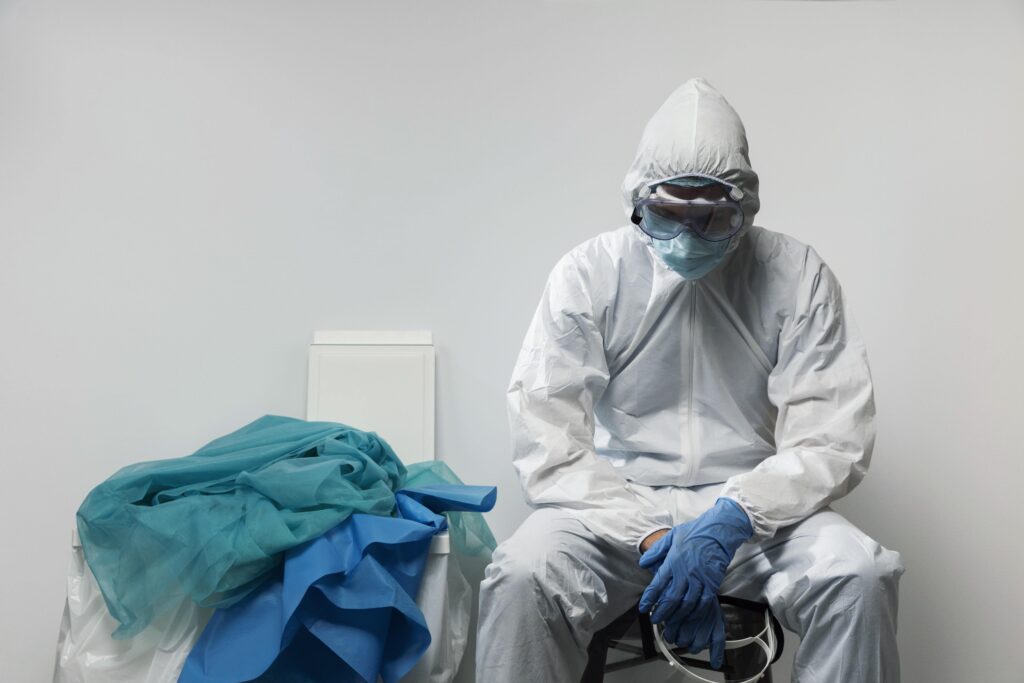Does Polyester Clothing Cause Cancer [ A Complete Guide ]

Unlocking the Truth: Does Polyester Clothing Cause Cancer? Delve into the complete guide to understand potential risks and make informed fashion choices. Explore the research, debunk myths, and find expert recommendations now!
Understanding Polyester Clothing [Why Polyester Clothing Cause Cancer]

Definition and Composition of Polyester Fibers:
Polyester fibers are synthetic polymers composed of esters, known for their durability and wrinkle-resistant properties. Understanding their chemical structure helps comprehend their characteristics and applications in the textile industry.
Prevalence of Polyester Clothing in the Market:
Polyester clothing has witnessed a significant surge in popularity, becoming a dominant presence in the fashion market. Analyzing its prevalence provides insights into consumer preferences and industry trends.
Reasons for the Popularity of Polyester Clothing:
Discover the factors contributing to the widespread popularity of polyester garments, such as affordability, versatility, and ease of maintenance, making it a favored choice among consumers and manufacturers alike.
Chemicals in Polyester Clothing

Overview of Chemicals Used in Polyester Production:
Delve into the chemical processes involved in polyester manufacturing, unveiling the primary substances used to create these synthetic fibers.
Identifying Potentially Hazardous Substances:
investigate the possibility of possibly toxic substances in polyester clothing and raise consciousness about any health risks associated with long-term exposure.
Chemicals’ Effects on Human Health:
Examine the possible effects of all of these chemicals on human health, taking into account factors such as skin sensitivity, respiratory issues, and long-term effects on overall well-being.
Cancer and Carcinogenicity

Understanding Cancer Development:
Investigate the complex process of cancer development, shedding light on the factors that contribute to its onset and progression within the human body.
Carcinogens and their Relationship to Cancer:
Identify and examine the substances recognized as carcinogens, understanding how they are linked to the development of various types of cancer.
Studies Linking Carcinogens to Cancer in Textiles:
Investigate the scientific research connecting carcinogenic substances found in textiles, including polyester clothing, to potential cancer risks.
Polyester Clothing and Cancer Risks

Review of Scientific Studies on the Topic:
Analyze and synthesize the findings from scientific studies investigating the possible relationship between polyester clothing and cancer risks.
Examination of Methodologies and Findings:
Scrutinize the methodologies used in the studies to understand the credibility of the evidence presented, and assess the strength of any associations found.
Identification of Potential Limitations and Biases in Research:
Critically evaluate potential limitations and biases present in the studies, which may affect the reliability and generalizability of the conclusions reached.
Cancer and Endocrine Disruption

Endocrine-Disrupting Chemicals (EDCs):
EDCs are a class of substances that are known to disrupt the endocrine system, which is responsible for regulating hormones and other physiological processes in the human body. Understanding the properties and effects of these chemicals is critical for understanding their potential impact on cancer development and other health issues.
Connection between EDCs and Cancer Development
Several studies have found a link between EDC exposure and an increased risk of various types of cancer. We hope to understand how EDCs contribute to cancer initiation and progression by investigating the mechanisms by which they influence cellular processes and disrupt hormonal balance.
Evaluating the Presence of EDCs in Polyester Clothing
Because polyester is a common synthetic fabric, there has been some concern about the release of EDCs from these garments and their potential absorption through the skin. We hope to shed light on the potential health risks associated with wearing polyester clothing and its link to endocrine disruption and cancer by critically evaluating scientific research and examining industry practises.
Exposure to Polyester Clothing and Cancer Incidence
Analyzing Polyester Clothing Exposure Levels:
Investigate the extent of exposure to polyester clothing in various populations, examining potential implications for cancer incidence.
Case Studies or Epidemiological Evidence on Cancer Incidence:
Explore relevant case studies and epidemiological data to assess any correlations between wearing polyester clothing and cancer occurrence.
Identifying Potential Risk Groups and Vulnerable Populations:
Identify specific risk groups and vulnerable populations that may be more susceptible to the potential health effects of prolonged polyester clothing exposure.
Regulatory Measures and Industry Standards

Current Regulations and Guidelines for Textile Production:
Examine existing regulations and guidelines governing textile production, with a focus on polyester manufacturing processes and safety standards.
Industry Practices Related to Chemical Usage and Disclosure:
Analyze the textile industry’s practices concerning the use of chemicals in polyester production, and the level of transparency in disclosing potential health risks.
Comparing Regulations in Different Countries and Regions:
Compare and contrast the regulatory landscape for polyester textile production in different countries and regions to identify variations and potential areas of improvement.
Minimizing Risks from Polyester Clothing
Potential Strategies to Reduce Exposure to Harmful Chemicals:
Propose and explore potential strategies and best practices to minimize exposure to harmful chemicals associated with polyester clothing.
Promoting Safe Textile Practices and Consumer Awareness:
Highlight the importance of raising consumer awareness about potential risks and encouraging responsible textile practices in the industry.
Exploring Eco-Friendly and Health-Conscious Alternatives:
Suggest eco-friendly and health-conscious alternatives to polyester clothing, promoting sustainable fashion choices for consumers.
Conclusion:
In conclusion, our comprehensive exploration sheds light on the potential link between polyester clothing and cancer risks. Through analyzing cancer development, known carcinogens, and studies connecting carcinogens to textiles like polyester, valuable insights have been gained. Additionally, the investigation into endocrine disruption emphasizes the significance of understanding the impact of endocrine-disrupting chemicals (EDCs) in polyester clothing on human health and their potential role in cancer initiation and progression. Identifying exposure risks, vulnerable groups, and the importance of regulatory measures and responsible practices in the textile industry highlights the need for targeted preventive actions. Considering eco-friendly alternatives and informed decision-making can lead to a healthier and more sustainable future. While further research is required, this study serves as a catalyst for raising awareness, guiding regulations, and promoting safer choices for consumers and the fashion industry, fostering a society that prioritizes well-being and environmental stewardship in fashion and textiles.



